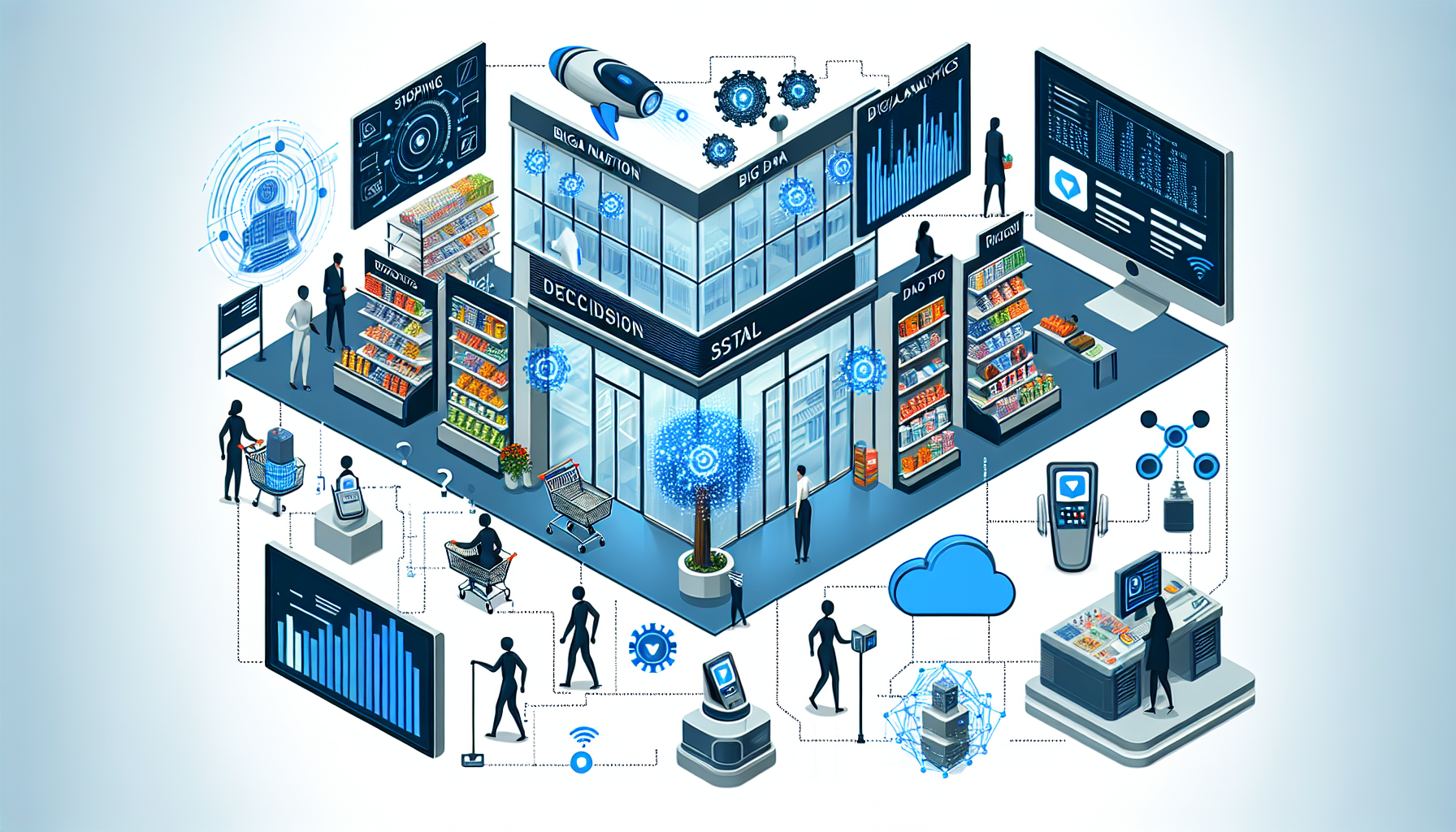Leveraging AI for Better Decision Making in Retail Businesses
1. Understanding AI in Retail
Artificial Intelligence (AI) has transformed various sectors, and retail is at the forefront of this revolution. By employing complex algorithms and data analytics, retailers can glean insights from consumer behavior, market trends, and operational efficiencies, thereby enhancing decision-making processes.
2. Enhanced Customer Insights
AI tools such as machine learning and natural language processing allow retail businesses to analyze vast datasets generated by customer interactions. With AI, retailers can track buying patterns, preferences, and feedback from multiple sources, including social media, e-commerce platforms, and in-store purchases. Enhanced customer insights lead to personalized recommendations, targeted marketing campaigns, and improved customer loyalty.
-
Predictive Analytics: Through predictive analytics, AI can anticipate consumer needs based on historical purchasing data. This capability enables retailers to stock the right products at the right time, minimizing the risk of overstocking or stockouts.
-
Sentiment Analysis: AI-driven sentiment analysis tools can monitor brand mentions, customer reviews, and social media interactions, giving retailers a deeper understanding of customer perceptions and expectations.
3. Inventory Management Optimization
One of the most significant challenges in retail is inventory management. AI optimizes this process by forecasting demand more accurately and minimizing excess inventory.
-
Dynamic Pricing: AI can analyze market trends and competitor pricing to adjust prices dynamically. This strategy not only maximizes profitability but also improves customer perceptions of value.
-
Automated Replenishment: Advanced AI systems monitor inventory levels in real time, automatically placing orders for replenishment before stock runs out. This aspect is crucial for maintaining equilibrium in supply chain management.
4. Cost Reduction and Operational Efficiency
AI is instrumental in enhancing operational efficiencies across retail operations.
-
Process Automation: Routine tasks such as payroll processing, order management, and customer service inquiries can be automated through AI, reducing labor costs and minimizing human error.
-
Supply Chain Optimization: AI systems analyze logistics data to identify inefficiencies and recommend changes. By streamlining the supply chain, retailers can significantly reduce operational costs.
5. Personalization at Scale
Today’s consumers expect tailored shopping experiences. AI facilitates hyper-personalization, which can drive customer engagement and increase sales.
-
Recommendation Engines: AI algorithms analyze user behavior to generate personalized product recommendations. This level of personalization can increase conversion rates substantially, as customers are more likely to purchase items relevant to their interests.
-
Targeted Marketing Campaigns: AI can segment customers based on various attributes and behaviors, enabling retailers to design targeted campaigns that resonate with each group, thereby increasing engagement rates and return on investment.
6. Enhanced Customer Service
AI enhances customer interactions, creating a seamless shopping experience.
-
Chatbots and Virtual Assistants: Implementing AI-powered chatbots ensures 24/7 customer service capabilities. Chatbots can handle common queries and provide instant support, improving customer satisfaction levels without additional staffing costs.
-
Voice Commerce: With the rise of voice-activated devices, retailers can leverage AI for voice search optimization. AI ensures that retail websites are optimized for voice queries, facilitating purchases through voice-activated devices.
7. Fraud Detection and Prevention
Fraud is a significant risk in retail. AI technology can mitigate this risk effectively.
-
Real-time Monitoring: AI systems can analyze transactional data to identify suspicious patterns in real time. By flagging unusual transactions, retailers can act swiftly to prevent fraudulent activities.
-
Customer Behavior Analysis: Behavioral analysis algorithms can establish normative behavior patterns, which aids in detecting anomalies that may indicate fraud.
8. Supply Chain Transparency
Retail businesses are increasingly focusing on supply chain transparency, and AI plays a crucial role in achieving this goal.
-
Blockchain Integration: Integrating AI with blockchain technology enhances traceability in supply chains, allowing retailers to monitor product journeys from manufacturers to consumers. This transparency builds trust and improves brand reputation.
-
Smart Contracts: AI-driven smart contracts can automate agreements in the supply chain, ensuring compliance and reducing bottlenecks in vendor relationships.
9. Engaging Retail Analytics
AI tools enable retailers to perform advanced analytics, providing actionable insights for strategic decision-making.
-
Customer Behavior Analytics: Retailers can leverage AI to decode customer interactions in-store and online, offering insights into how products are discovered, purchased, and discussed.
-
Market Trend Analysis: AI systems analyze competitive landscapes and suggest strategic moves. Retailers can adjust their business models based on prevailing economic conditions, market demands, and consumer preferences.
10. Employee Training and Development
AI doesn’t just enhance customer experiences; it can elevate employee performance as well.
-
Employee Performance Analytics: Retailers can use AI to appraise employee performance metrics, identifying areas for improvement through data analysis.
-
Training Programs: AI-driven platforms can provide personalized training modules, equipping employees with the skills necessary to excel in their roles, thus enhancing overall operational effectiveness.
11. Challenges to Implementation
While AI offers myriad benefits, challenges remain in its implementation.
-
Data Privacy and Security: Retailers must navigate regulatory compliance regarding data use. Ensuring robust data security measures is vital to safeguard sensitive consumer information and maintain trust.
-
Change Management: Transitioning to AI-driven operations requires cultural shifts within organizations. Retailers need to invest in training and change management strategies to foster acceptance among staff.
12. Future Trends in AI for Retail
As technology continues to evolve, so will AI’s role in retail.
-
Augmented Reality (AR): In the future, AR integrated with AI could revolutionize customer experiences in retail, allowing virtual try-ons and immersive shopping experiences.
-
Sustainability: AI can help retailers pursue sustainable initiatives by optimizing resource use and predicting demand patterns that reduce waste, aligning business practices with environmentally friendly strategies.
By embracing AI, retailers can not only enhance their decision-making processes but also fundamentally transform how they engage with customers, manage operations, and compete in an increasingly complex marketplace. Adopting these technologies can lead to improved profitability, stronger customer relationships, and sustainable business growth.


